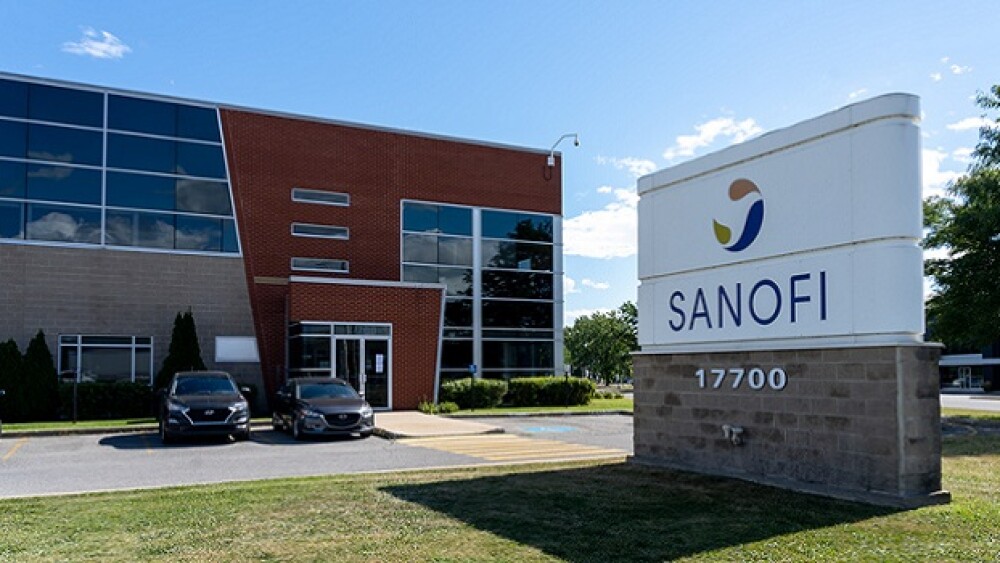The French drugmaker is buying California-based biotech Inhibrx to gain access to its clinical-stage drug candidate for alpha-1 antitrypsin deficiency, as it tries winning over investors with potential blockbusters.
Pictured: Sanofi Distribution Center/iStock, JHVEPhoto
Sanofi is acquiring California-based biotech Inhibrx in a deal potentially worth $2.2 billion, the French drugmaker announced on Tuesday.
Under the terms of the acquisition, Sanofi will buy all outstanding shares of Inhibrx for $30 per share in cash, representing an equity value of $1.7 billion on a fully diluted basis. At the same time, Inhibrx shareholders will receive cash payments—which could total $296 million—while Sanofi will be responsible for satisfying Inhibrix’s outstanding third-party debt.
Sanofi said that it has agreed to acquire Inhibrx after the spin-off of non-INBRX-101 assets into a New Inhibrx, leaving the French pharma with INBRX-101. The candidate is a human recombinant protein that allows patients with alpha-1 antitrypsin deficiency (AATD), a rare disease that puts patients at risk for lung, liver, or skin disease, to have a “normalization” of serum AAT levels with fewer dosing. The candidate may also help to reduce inflammation and prevent the deterioration of lung function.
The New Inhibrx will be capitalized with $200 million of cash at distribution, while Sanofi will retain an 8% stake in the venture whichwill keep all non-INBRX-101 assets—including its immunology pipeline—and maintain all employees. The transaction is expected to close in the second quarter of 2024.
INBRX-101 has completed a Phase I trial, which demonstrated encouraging results according to Sanofi. A Phase II trial is currently enrolling participants.
“The addition of INBRX-101 as a high potential asset to our rare disease portfolio reinforces our strategy to commit to differentiated and potential best-in-class products,” Houman Ashrafian, head of research and development at Sanofi, said in a statement. “With our expertise in rare diseases and growing presence in immune-mediated respiratory conditions, INBRX-101 will complement our approach to deploy R&D efforts in key focus areas and address the needs of the underserved AATD patients and communities.”
Sanofi has been in a deal-making mood since the fourth quarter of last year. In October 2023, the French drugmaker and Teva Pharmaceuticals partnered on a product for treating inflammatory bowel disease in which Sanofi paid $500 million upfront, with up to $1 billion in future milestone payments, to co-develop and co-commercialize Teva’s Phase II anti-TL1A antibody.
However, following an FTC challenge, Sanofi last month dropped a planned licensing agreement with California-based Maze Therapeutics to develop treatments for the rare genetic disorder Pompe disease.
The French pharma is also trying to win over its investors by highlighting a dozen potential blockbusters and charting strong growth for the company through 2030.
Tyler Patchen is a staff writer at BioSpace. You can reach him at tyler.patchen@biospace.com. Follow him on LinkedIn.






